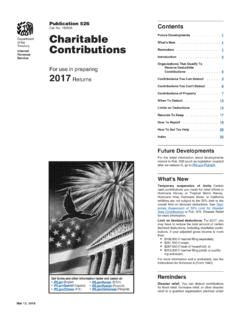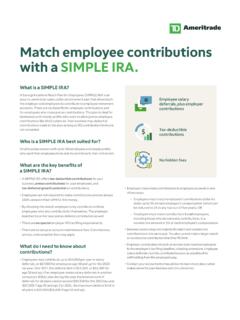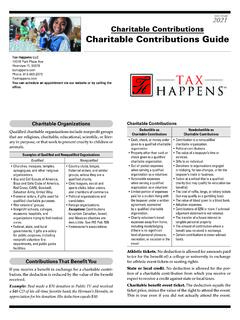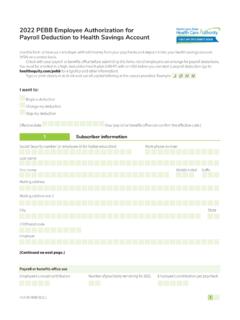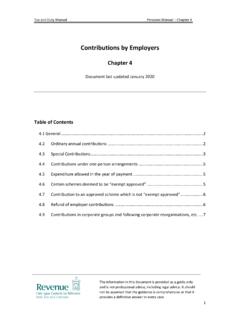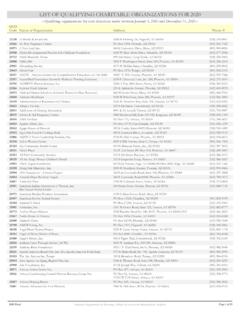Transcription of Audit Technique Guide for Fundrasising Activities
1 1 Audit Technique Guide Fundraising Activities Introduction This Guide addresses examining tax exempt organization fundraising and provides: Background information Audit guidelines Audit techniques Audit procedures This Guide is not all-inclusive and doesn t intend to limit agents to identifying issues or using techniques not listed in this Guide . For information on fundraising issues involving political organizations, see the Audit Technique Guide for Political Organizations. For information on fundraising issues involving gaming Activities , see the Audit Technique Guide for Organizations Conducting Gaming Activities .
2 This manual is organized into five sections: Background information Activities (professional fundraisers, fundraising events, internet fundraising) Records (solicitations, disclosures, cash contributions , non-cash contributions ) Reporting (Form 990-EZ, Form 990: Core Return, Schedule G, Schedule M, Form 990-PF, Form 990-T) Audit procedures (pre- Audit , field/OCEP, penalty considerations, case closing) Background Most, if not all, tax exempt organizations need money. Many exempt purposes can only be achieved via the application of money. Thus, large numbers of organizations devote significant resources to acquiring money.
3 These organizations use various methods to obtain funds, ranging from selling a product or service, conducting a fundraising event, to just asking for money. Traditional methods of obtaining funds include soliciting donors via the mail, phone calls, newspapers, radio, television, and now via the Internet. Organizations have become creative over the years, conducting Activities and events, such as the sales of foodstuffs, car washes, raffles, casino nights, auctions, and pledge drives, evolving towards more sophisticated ways to fundraise, such as targeting solicitations, using patronage levels, crowd-funding, and tax planning, such as conservation easements, lending arrangements, and charitable gift annuities.
4 Fundraising Activities generate tax issue concerns, such as: Is the contribution deductible ? How much of the contribution is deductible ? What is the value of the contribution? Is the donation a valid contribution? Does the fundraising activity trigger a tax liability? 2 If tax is owed, how do I compute the tax? How does the information get reported? See these helpful publications for taxpayers who are both donors and donees: Pub. 1771, Charitable contributions - Substantiation and Disclosure Requirements Pub. 526, Charitable contributions Pub. 561, Determining the Value of Donated Property Pub.
5 4302, A Charity s Guide to Vehicle Donations Pub. 4303, A Donor s Guide to Vehicle Donations Professional Fundraisers Professional fundraisers are people and companies that tax exempt entities hire to raise funds. Some fundraisers work as employees for the organizations for which they raise funds. Other fundraisers work as consultants, many independently contracted for specific fundraising Activities . Fundraising employees typically receive salaries; however, some may receive a percentage of the gross receipts. In either situation, consider reviewing the contracts to determine if excess benefit transactions exist.
6 Be aware that most organizations will lump the fundraising employee(s) compensation with the rest of the organization s staff when they report expenses on the Forms 990-EZ, 990-PF, and 990. Therefore, you may not necessarily find a separate expense listing for the fundraising employee. Those working on behalf of organizations as external consultants or fundraisers must file reports with the various state charity regulators. Many of these entities and/or individuals receive a percentage of the proceeds. Some receive a percentage in addition to a set base amount of compensation. As these arrangements, can lead to abuse, consider reviewing all contracts with fundraising firms to determine the extent of private benefits.
7 For a list of state charity regulators, see the website. If an organization employs/contracts a professional fundraiser s services, consider reviewing any reports filed with the state(s). Depending on the type of organization, you may need to also check the Federal Election Commission, state lobbyist and political campaign disclosure websites, as well as the site for political and legislative fundraising records. See Audit Technique Guide for IRC Section 527 Political Organizations. Fundraising Events On any given day, you may encounter a fundraising activity. Whether purchasing a newspaper on a city corner, stopping to buy food at a table set up outside a grocery store, or dropping your spare change into a container at a cash register, chances are you ve taken part in a fundraising transaction.
8 3 Fundraising Activities are undertaken to induce potential donors to contribute money, securities, services, materials, facilities, other assets, or time. Fundraising events include: dinners and dances door-to-door sales of merchandise concerts carnivals sports events auctions casino nights (in which participants can play casino-style games but the only prizes or auction items given are non-cash items that were donated to the organization) similar events not regularly carried on conducted for the primary purpose of raising funds. Activities to support these events can include: Publicizing an event.
9 Maintaining donor mailing lists. Preparing and distributing fundraising manuals, instructions, and other materials. Professional fundraising services. Conducting other Activities involved with soliciting contributions from individuals, foundations, governments, and others. Fundraising events don t include: The conduct of a trade or business that is regularly carried on Activities substantially related to the accomplishment of the organization s exempt purposes (other than by raising funds) Solicitation campaigns that generate only contributions , which may involve goods or services from the organization of only nominal or token value.
10 (See Solicitations below.) Sweepstakes, lotteries, or raffles in which the names of contributors or other respondents are entered in a drawing for prizes of only nominal value. Gaming Organizations are responsible for recording all fundraising transactions and reporting on their Activities . The greater the amount of gross receipts, the greater the reporting requirements. The level of detail in the record keeping is up to the individual organization; however, it must keep certain records to satisfy various reporting needs. Organizations that don t keep appropriate records may be subject to inadequate records notices or revocation.










